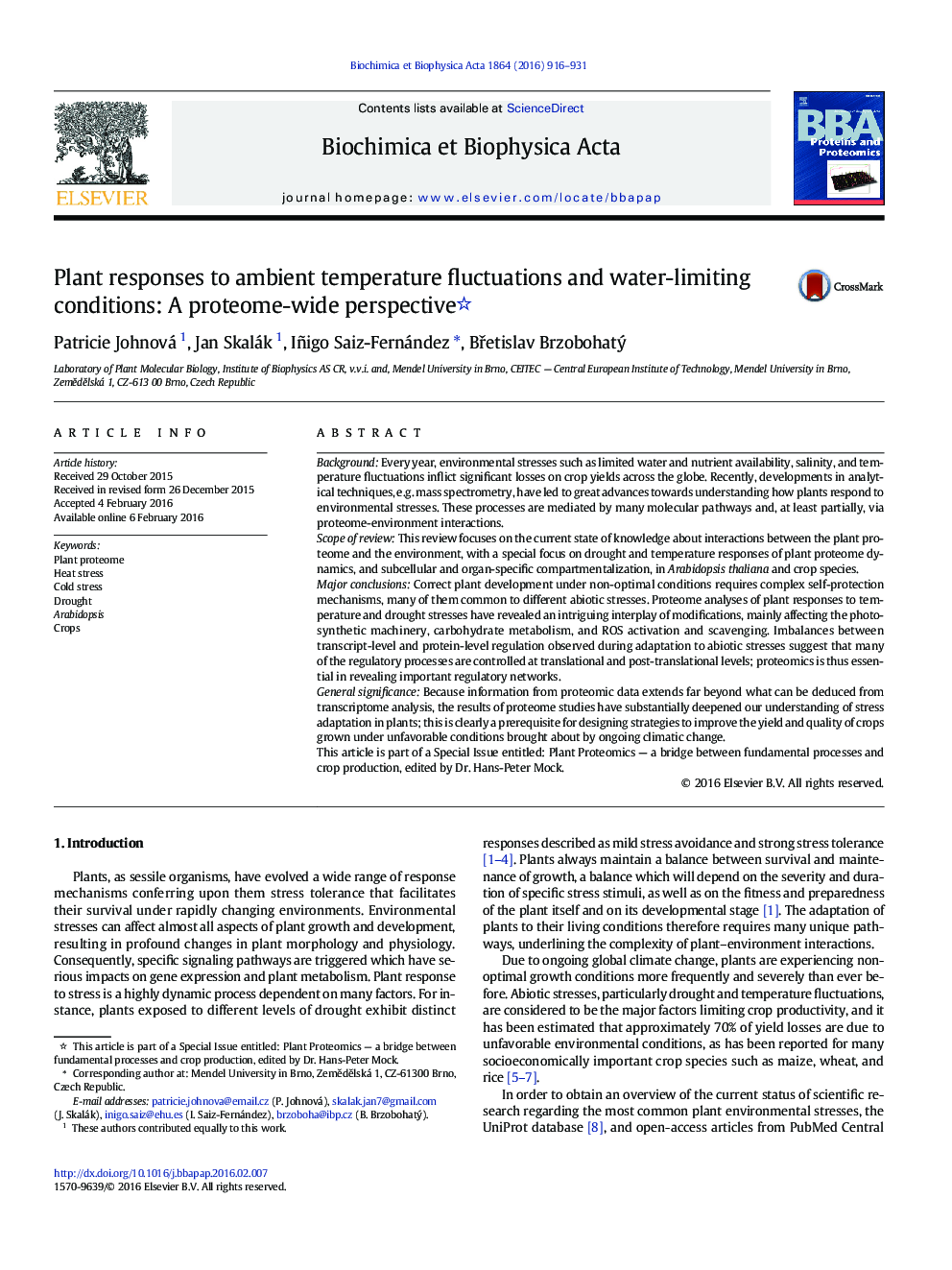| کد مقاله | کد نشریه | سال انتشار | مقاله انگلیسی | نسخه تمام متن |
|---|---|---|---|---|
| 1178103 | 962665 | 2016 | 16 صفحه PDF | دانلود رایگان |
• Stress resulting from climatic change causes large modifications of plant proteome.
• Dynamic adjustment of the proteome gives plants the ability to survive.
• Many regulatory processes are controlled translationally and post-translationally.
• Comparison of the transcriptome and proteome reveals complex regulatory mechanisms.
• Recent findings may be applicable to the engineering of stress tolerant species.
BackgroundEvery year, environmental stresses such as limited water and nutrient availability, salinity, and temperature fluctuations inflict significant losses on crop yields across the globe. Recently, developments in analytical techniques, e.g. mass spectrometry, have led to great advances towards understanding how plants respond to environmental stresses. These processes are mediated by many molecular pathways and, at least partially, via proteome-environment interactions.Scope of reviewThis review focuses on the current state of knowledge about interactions between the plant proteome and the environment, with a special focus on drought and temperature responses of plant proteome dynamics, and subcellular and organ-specific compartmentalization, in Arabidopsis thaliana and crop species.Major conclusionsCorrect plant development under non-optimal conditions requires complex self-protection mechanisms, many of them common to different abiotic stresses. Proteome analyses of plant responses to temperature and drought stresses have revealed an intriguing interplay of modifications, mainly affecting the photosynthetic machinery, carbohydrate metabolism, and ROS activation and scavenging. Imbalances between transcript-level and protein-level regulation observed during adaptation to abiotic stresses suggest that many of the regulatory processes are controlled at translational and post-translational levels; proteomics is thus essential in revealing important regulatory networks.General significanceBecause information from proteomic data extends far beyond what can be deduced from transcriptome analysis, the results of proteome studies have substantially deepened our understanding of stress adaptation in plants; this is clearly a prerequisite for designing strategies to improve the yield and quality of crops grown under unfavorable conditions brought about by ongoing climatic change.This article is part of a Special Issue entitled: Plant Proteomics — a bridge between fundamental processes and crop production, edited by Dr. Hans-Peter Mock.
Journal: Biochimica et Biophysica Acta (BBA) - Proteins and Proteomics - Volume 1864, Issue 8, August 2016, Pages 916–931
